Bangladesh's vulnerability to climate change is intensifying, accelerating internal migration and urbanization. The nation, already prone to natural disasters like cyclones and floods, now faces amplified threats due to rising sea levels and land erosion. This photo series tells a story of relentless erosion, not just of land, but of lives, memories, and hope. It's a poignant testament to the human cost of a crisis the victims didn't create. These are not just statistics; they are faces—the face of Amena Begum, whose home was swallowed by the mighty river, and the face of Jamal, a 55-year-old man watching his entire life vanish.
Rising sea levels and land erosion disproportionately affect rural populations, forcing them to abandon their homes in search of safety and livelihood. The mass movement of people to urban centers like Dhaka creates a cautionary tale for "refuge cities" worldwide. This crisis highlights the insufficiency of current international aid and the urgent need for a multi-faceted approach, combining local adaptation strategies with a significant global reduction in CO2 emissions.
The voices from these eroding shores speak of a brutal, unyielding reality. "The river stole my home," they whisper, "the land my ancestors tilled for generations is now gone." A boy clings to a rope, his future hanging by a thread as he steps onto a boat of refugees. A man carries a final harvest of bananas, his "last savings" before poverty claims him. The children's eyes, filled with an "uncertain horizon", tell a story of lost dreams and severed connections. This is the "climate's human cost"—a constant struggle for survival against a hostile environment of relentless storms and rising waters. The suffering of those forced to flee their homes is immense. They leave behind ancestral lands and tightly knit communities, severing ties that have sustained them for generations. This mass displacement is a direct threat to Bangladesh's food security and rural economy, as productive agricultural land is lost to the rising waters.
The cries of these victims are a plea for action, not just aid. The solution isn't simply local efforts like building higher dams, it's a global commitment to change, not just aid. The developed world, with its disproportionately high carbon emissions, bears the primary responsibility. Combating this crisis requires a radical reduction in greenhouse gas pollution. We must listen to their whispers, for they carry the weight of a planet in peril, and their survival depends on our collective will to act.
Furthermore, there needs to be a significant increase in international financial aid and technological support for developing nations like Bangladesh. This isn't charity; it's an acknowledgment of a shared responsibility and a debt owed to those suffering the most from a crisis they did not create. The developed world must not only fulfill its financial pledges but also share expertise and technology to help Bangladesh and other vulnerable countries build climate-resilient infrastructure and develop alternative livelihoods. The plight of climate refugees in Bangladesh is a cautionary tale for the entire world, and their pleas for action must be heard as a global call to arms against a common enemy: climate inaction.
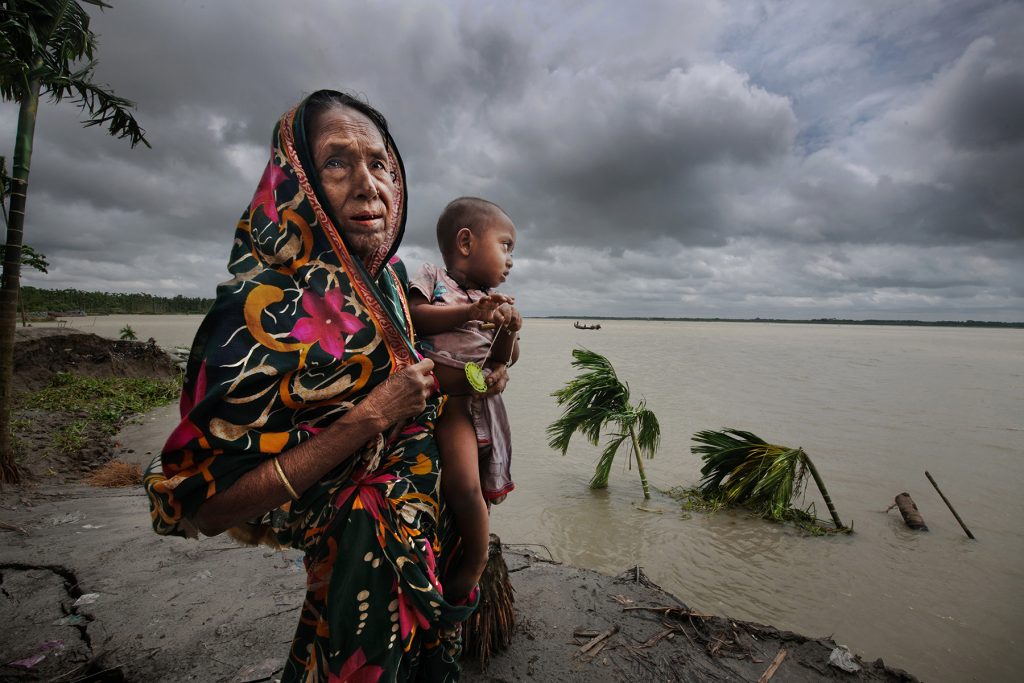
Face of Climate Victims.jpg
This picture was taken from Mehendiganj Barisal Bangladesh 22nd Aug 2025 Climate change and global warming are causing an annual climate disaster in Bangladesh This leads to heavy rainfall and river erosion like the recent event where the Mighty Meghna River took Amena Begum s home Rising temperatures and sediment buildup in riverbeds are largely responsible for destroying usable land and infrastructure forcing people to migrate
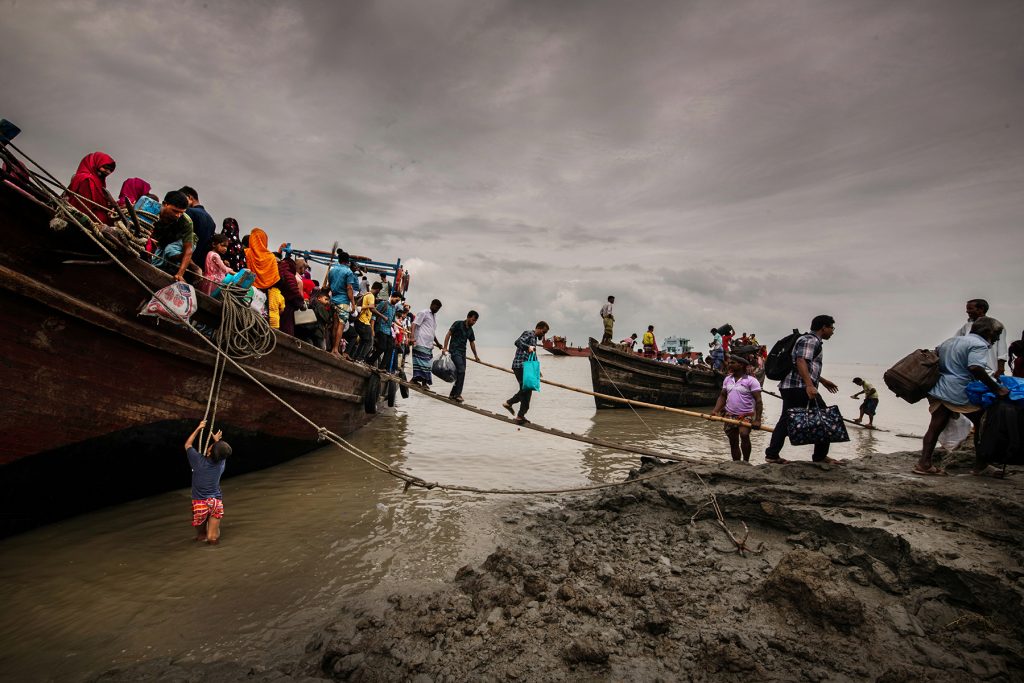
Climate Refugees
This picture taken from Hatiya Ghat Noakhali Bangladesh 21st Jun 2024 Meghna River erosion exacerbated by climate change is a primary driver of climate migration in Hatiya Noakhali Rising sea levels and increased storm intensity cause land to disappear forcing thousands of families from their homes and farms creating a new class of climate refugees They re left with no choice but to seek shelter and new livelihoods in other often unknown destinations
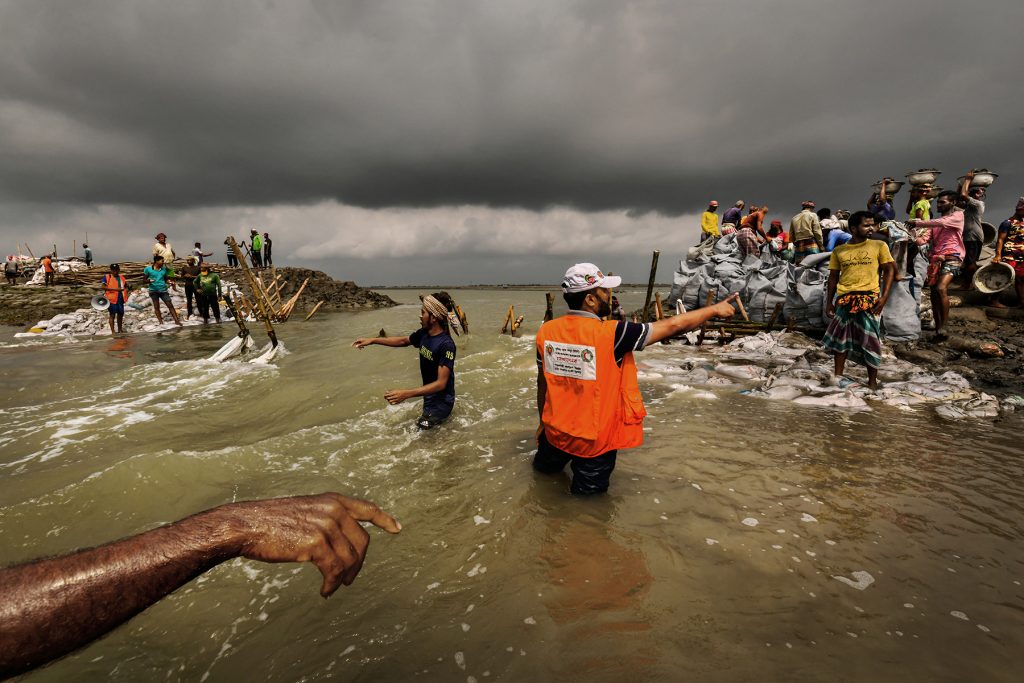
Climate's Human Cost
- In the aftermath of Cyclone Remal in June 2024 the Doshaliya township in Koyra Khulna was ravaged The cyclone breached their only protective dam submerging the community in saltwater This catastrophe has not only destroyed freshwater fish and crops but also rendered vast agricultural lands infertile Residents now climate refugees are desperately trying to rebuild their lives highlighting the immediate and devastating human cost of a changing climate
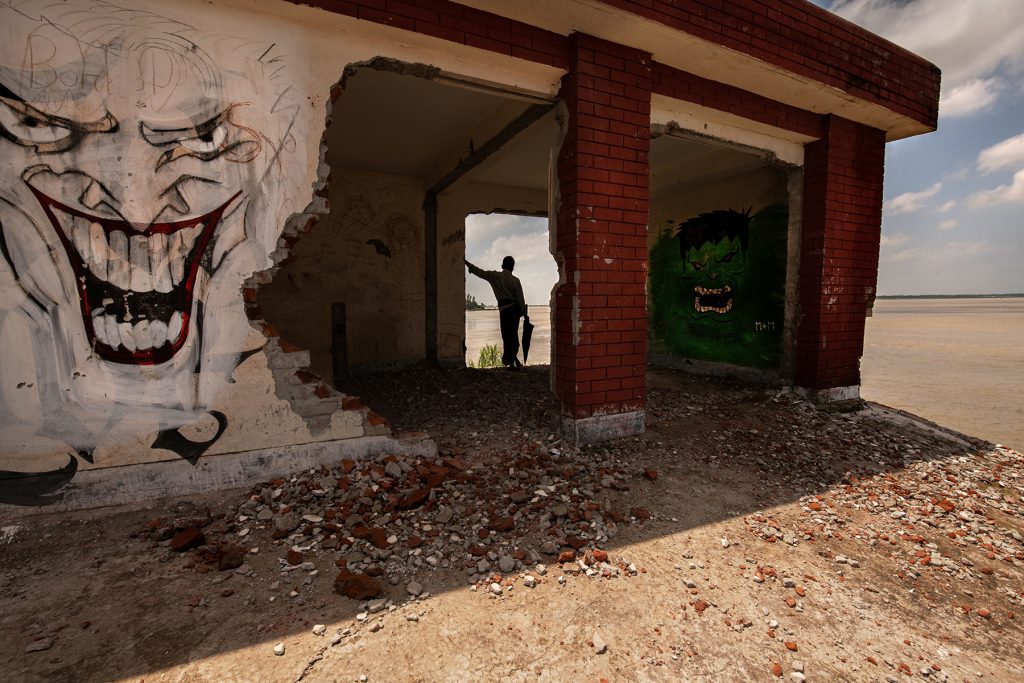
Eroding Shores
Decades of life in Charkatari Bangladesh are vanishing for 55-year-old Jamal as the Jamuna River swollen by global warming reclaims his home and land This relentless riverbank erosion is forcing him and millions of others to become climate migrants facing poverty poor health and homelessness This is the devastating human cost of climate change as rising waters erode not only land but also lives and a nation s stability
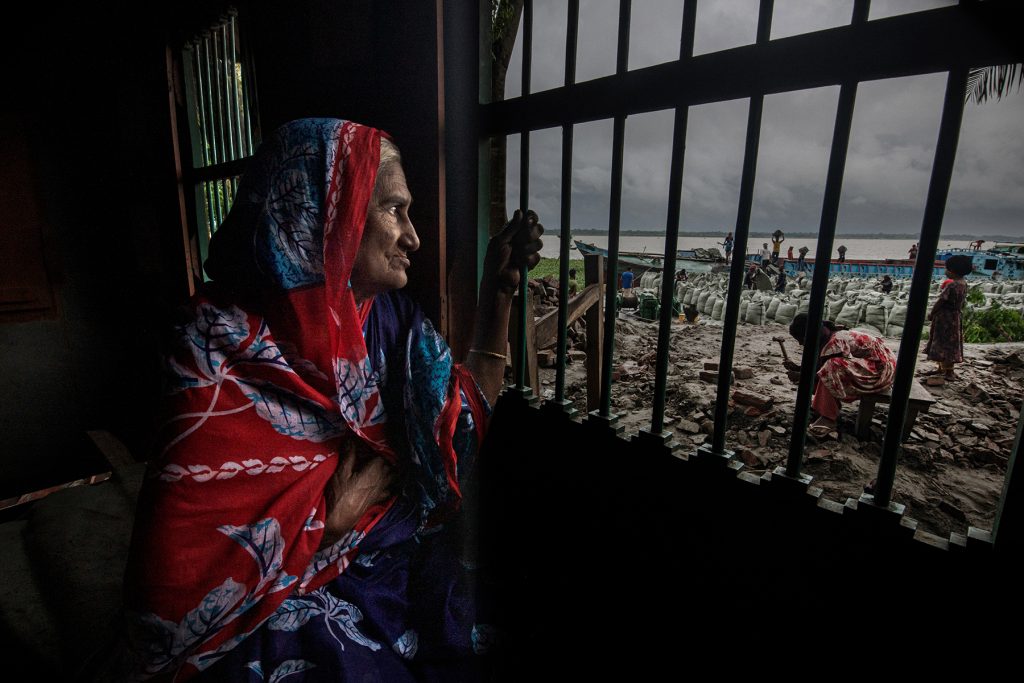
Uncertainty
This picture was taken from Patarhat Barisal Bangladesh 22nd Aug 2025 Climate change is displacing communities in Bangladesh as rising seas swallow habitable land Forced to migrate families like 70-year-old Khadija Begum face uncertain futures struggling for shelter livelihood and hope in rapidly urbanizing unfamiliar places
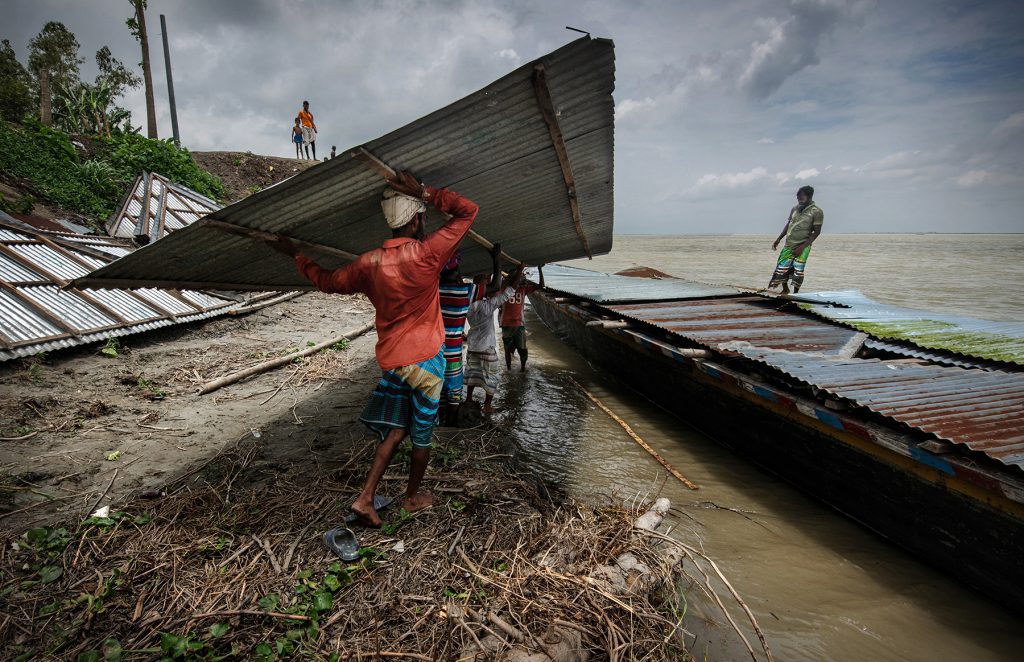
Shelter on Shoulders
This picture taken from Basamara Tangail Bangladesh - 20th Jun 2025 Facing a climate crisis in North Bengal Bangladesh Basamara villagers in Tangail are preparing to relocate The Padma River swollen by changing weather patterns is aggressively eroding their land and homes With their families and children they are making a final move to an unknown destination forced out by the devastating effects of riverbank erosion
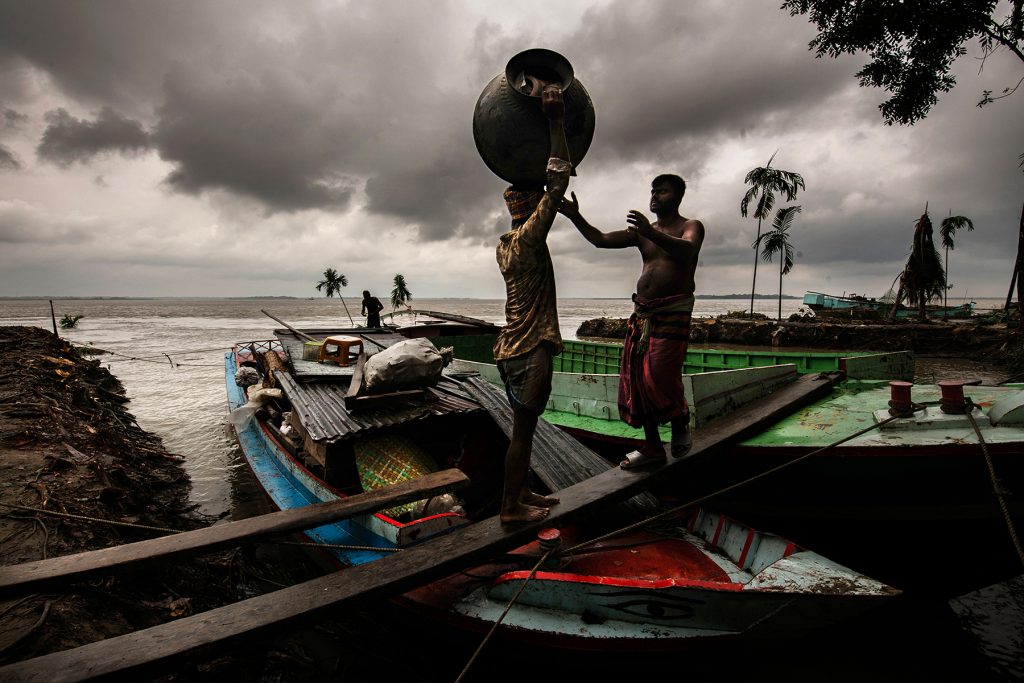
Last treasure
Two brothers in Barisal Bangladesh salvage what they can from the river s edge the last remnants of a life swept away by the mighty Meghna River Fueled by the effects of climate change the rising tides have stolen their home and land forcing them to become climate refugees Their struggle is a powerful image of the human cost of climate-induced displacement and the desperation of those with nowhere left to go
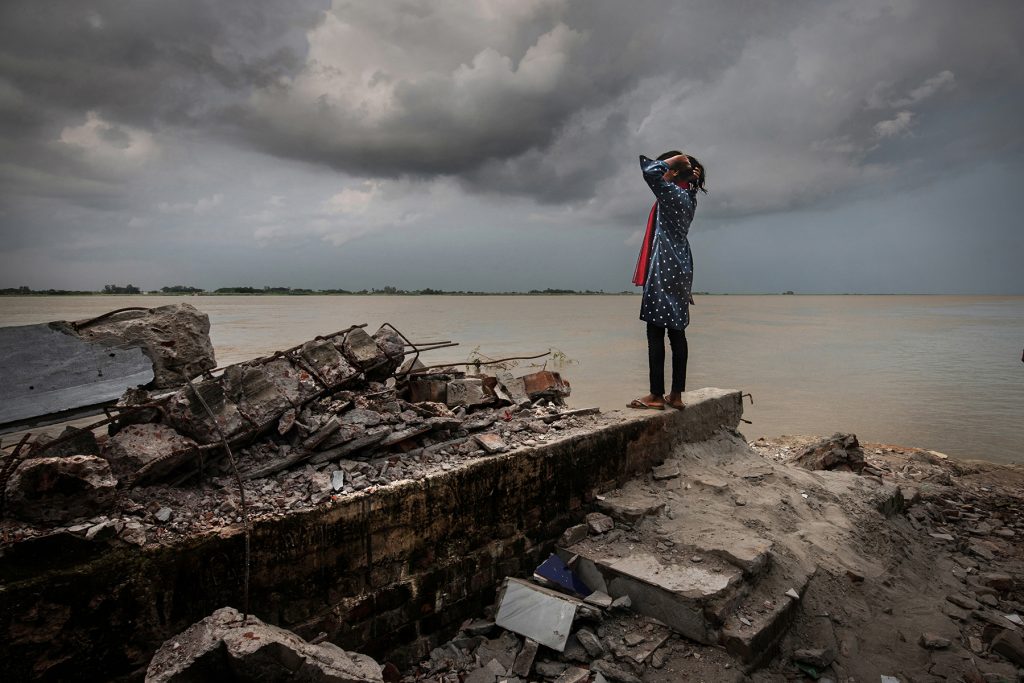
Uncertain Horizon
Riverbank erosion worsened by climate change is tearing communities apart in Bangladesh In Majhirghat Sharitpur 12-year-old Salma watches her home and school crumble into the river Displaced and landless she carries the burden of lost dreams and severed connections Her story reflects the harsh reality for countless children who are robbed of their future forced to become climate migrants and leaving everything they know behind This crisis shows how climate change steals not just land but a sense of belonging
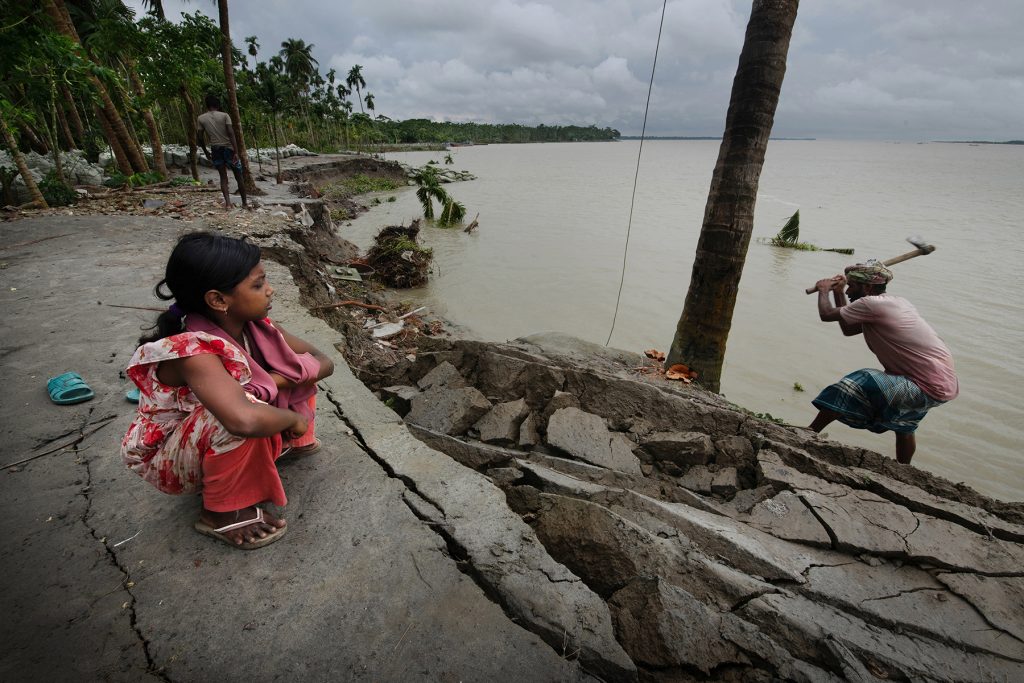
Climate Witness
Rising sea levels and intense storms driven by climate change are devastating coastal communities in Bangladesh Eleven-year-old Shamima from Mehendiganj Barisal lost her home to the powerful Meghna River Her story is one of many as families face displacement and profound uncertainty This crisis not only shatters lives and futures but also sets back the nation s progress in education health and economic stability Climate change isn t just a distant threat it s a present danger to children and a nation s future
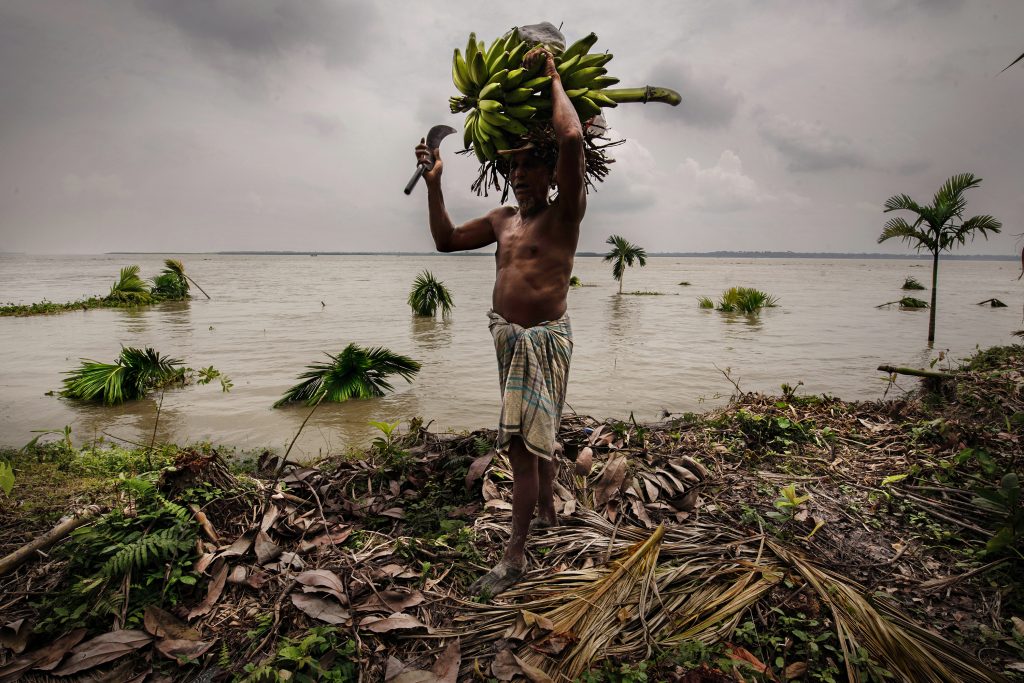
Last Savings
In Barisal Bangladesh a man walking with a final harvest of green bananas his home and land swallowed by the mighty Meghna river s relentless tides The rising waters a direct result of climate change have stolen everything This last act of gathering his last savings marks the start of an unimaginable journey a forced migration into poverty overnight It s a poignant testament to the unbearable cost of a crisis he didn t create
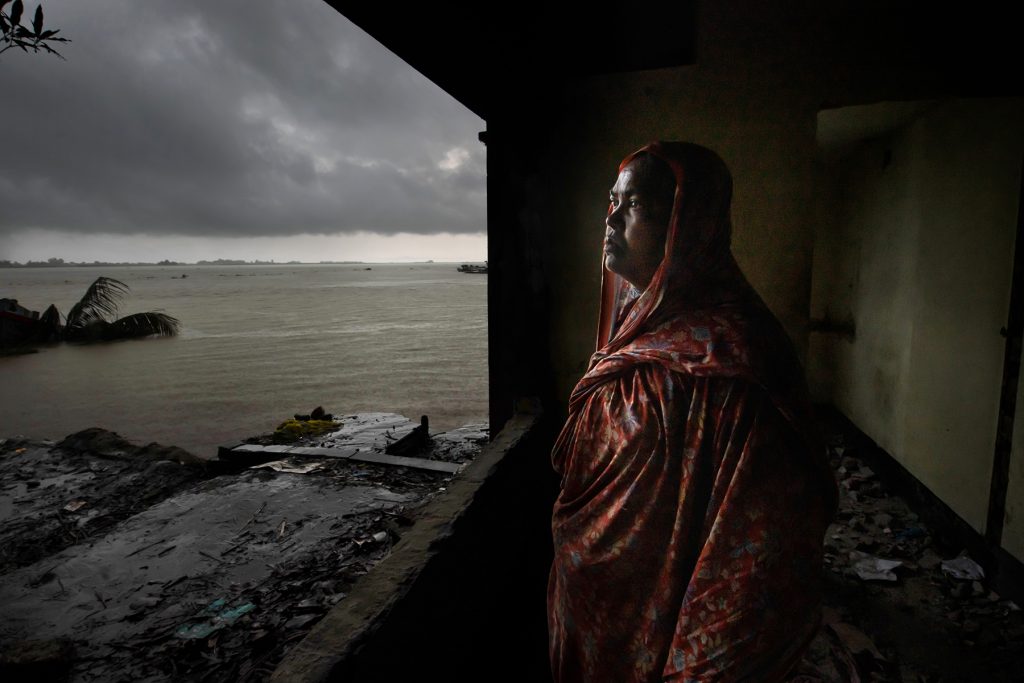
Waiting for last wave
This picture was taken from Majhirghat Shariatpur Bangladesh 17th Aug 2025 Amena 52 watches helplessly as the river swallows her home her crops her memories Riverbank erosion has left her landless and on the brink of homelessness Forced to migrate she carries only loss of roots of dignity Climate change stole not just her land but her life s anchor
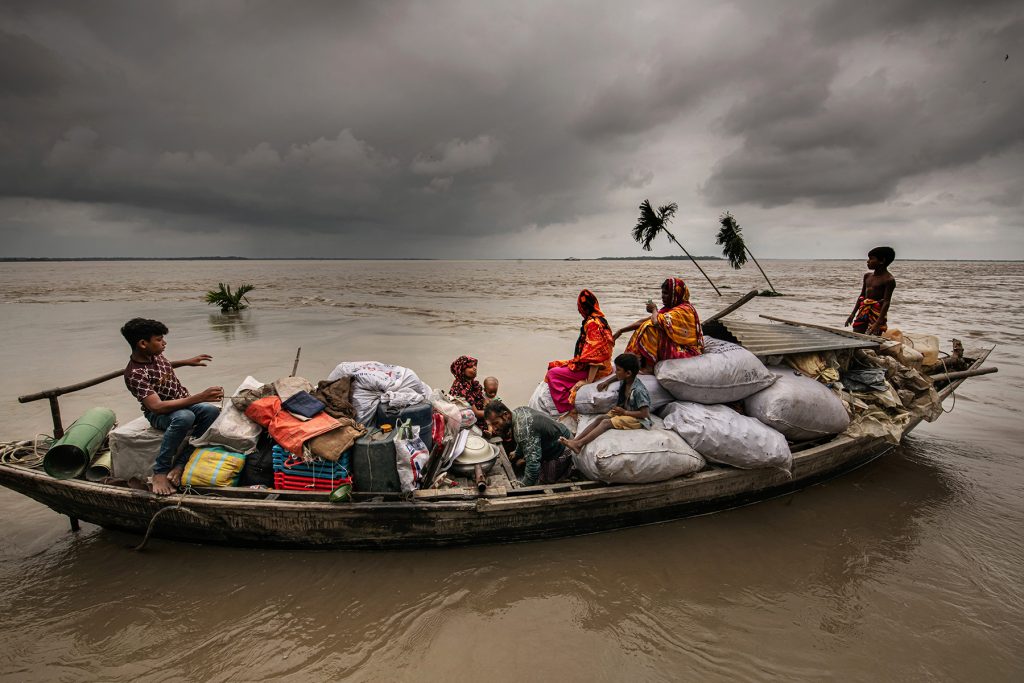
Tears of climate migrant
In Mehendiganj Barishal Bangladesh Amena Begum and her family are forced to flee as the river Padma erodes their home This annual disaster fueled by climate change and riverbed sedimentation displaces millions robbing them of their livelihoods health and a stable future Her story is a poignant reminder of the human cost of climate-induced displacement and the struggle for survival in the face of relentless environmental loss